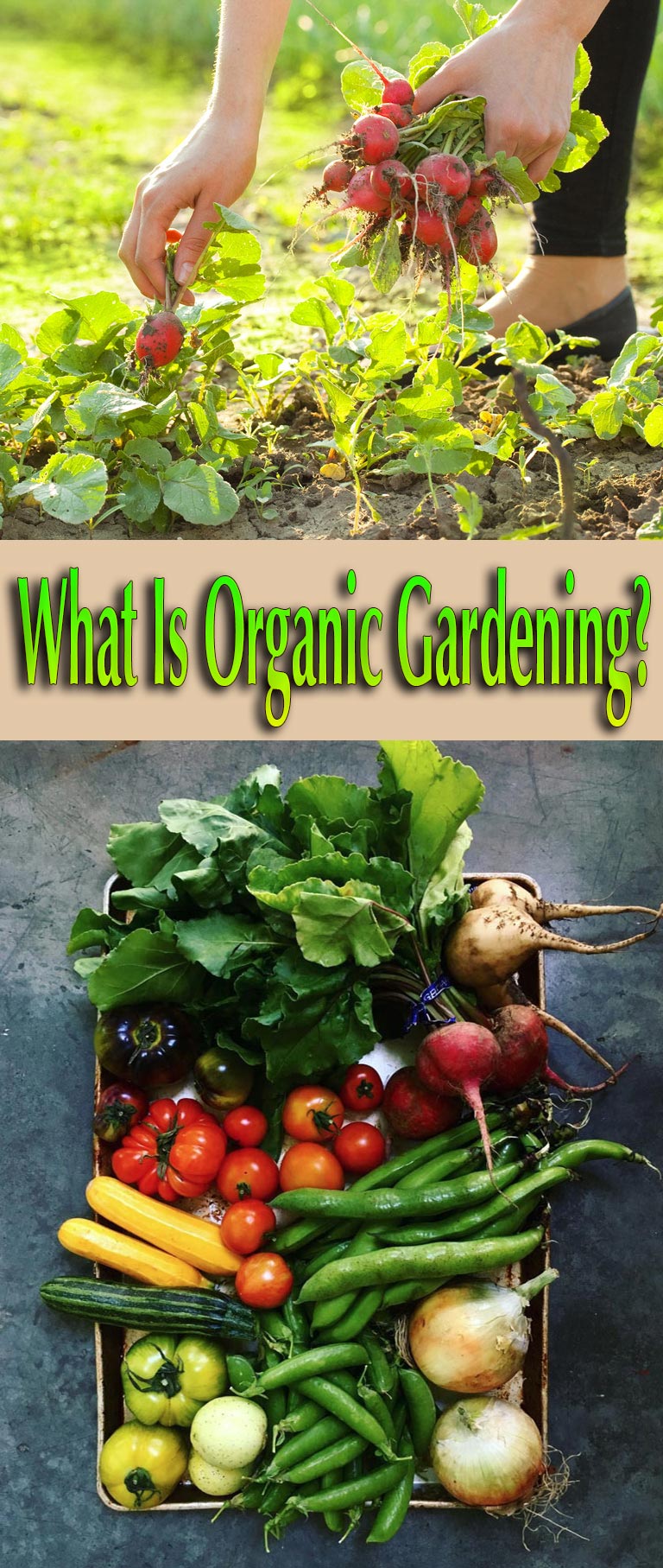
The word organic is bandied about a lot in connection with food and gardens these days, but what does organic gardening really mean?
That depends on the context. In simple terms, organic gardening could be described as growing in harmony with nature, without using synthetic fertilizers, pesticides, herbicides or other such products that upset the balance of the ecosystem. For farmers or commercial growers, however, it can be quite complex.
Following the Organic Foods Production Act of 1990, the U.S. Department of Agriculture (USDA) began setting national standards for food that could be labeled “organic,” whether it is grown in this country or imported. New federal programs came into being, charged with making sure that agricultural products labeled as organic “originate from farms or handling operations certified by a State or private entity that has been accredited by USDA.” The regulations were fully implemented in 2002.

Happily for gardeners, organic gardening at home is a personal choice, so it’s a lot more straight-forward – and much more fun. Here’s how the managing editor of Organic Gardening magazine, Therese Ciesinski, describes it:
“Organic gardening is more than simply avoiding synthetic pesticides and fertilizers. It is about observing nature’s processes, and emulating them in your garden as best you can. And the most important way to do that is to understand the makeup of your soil and to give it what it needs. If anything could be called a ‘rule’ in organic gardening, it’s this: feed the soil, not the plant.”
Feeding the Soil
To feed the soil, gardeners must restore the resources their gardens consume, by adding organic matter. That includes adding compost, and possibly growing cover crops – so-called green manure – that are tilled back into the soil. You can use compost as a replenishing additive, to make both clay and sandy soils more plant-friendly, or as a mulch on top of your garden beds.
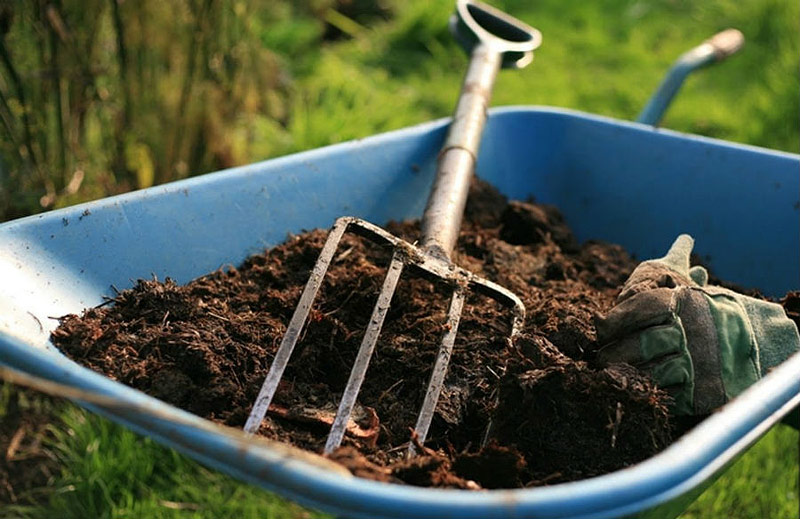
Compost is the microorganism- and nutrient-rich soil produced from the aerobic decomposition of organic matter. The garden itself is the source for many of the ingredients in compost, including grass clippings, plant waste, and shredded leaves in fall. You can also add kitchen waste such as vegetable and fruit scraps and peelings, coffee grounds, eggshells, and dead houseplants to your compost pile, and, if you wish, chicken, cow or horse manure. (Don’t add dog or cat droppings or dairy and meat products, however, as they may contain unwanted pathogens, or attract pests to the pile.)
Choosing the Right Plants
To Organic Gardening magazine’s founder, J.I. Rodale – who was advocating organic gardening back when green was just a color – adding compost meant healthier soil, and eating fruits and vegetables grown in healthy soil meant healthier people. Plants, of course, get their nutrients and moisture from the soil, so it stands to reason that rich soil will help plants thrive.
But choosing the right plant for the right place is also part of gardening organically. That means growing plants that are adapted to your region – and also suited to the conditions in your garden – so that they don’t need a lot of extra care to enable them to grow. A water-loving plant situated in a hot, dry spot may survive with a lot of help from you, but it will be constantly stressed. That’s not emulating nature’s processes.
Organic Gardening and Pest Damage
Plants that aren’t already stressed are better equipped to withstand insect infestations, too. That doesn’t mean there won’t be damage to your plants. Organic gardeners generally allow for a certain amount of pest damage, because they understand that they are all part of a natural system that includes wildlife – even bugs.
Diversity helps. Don’t make life easy for the bugs by planting large swaths of one crop, but instead interplant different kinds of plants. And know your plants. Many organic gardeners find that they can keep damage to an acceptable level by checking their plants regularly for early signs of trouble.
Some insects can be controlled just by hand-picking. Potato plants, for example, can be defoliated by potato beetle larvae, but horticulture manager Bill Rein reports that walking through your potato plot once a week can solve the problem. Just turn over the leaves to check for bright orange larvae, and pinch off the leaves on which you find them. Dispose of the leaves safely (not in the compost pile).
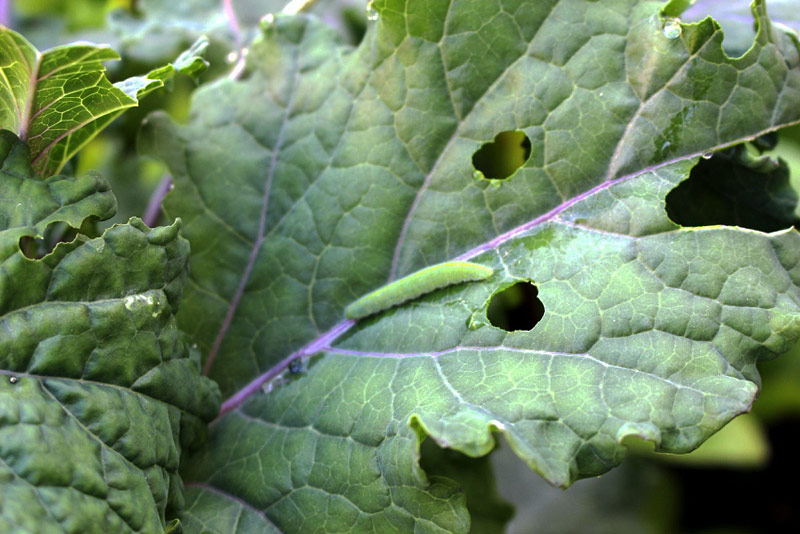
It helps to know which bugs are beneficial, and which are destructive pests, and when they are likely to arrive in your garden. Often, the beneficial insects, such as lady beetles, are predators that eat the eggs or larvae of pest insects, such as aphids – and when the two have similar seasons, it creates a nice balance in nature, and your garden. Also, if you know when seasonal infestations of particular insects are likely, you can use other defenses: floating row covers to prevent moths from landing and laying eggs, sticky traps to capture airborne insect pests, or collars (tinfoil works well) around the base of plants to deter borers, cutworms and similar bugs.
There are some excellent books that help gardeners learn about the insects in their backyards. Among them are Garden Insects of North America: The Ultimate Guide to Backyard Bugs by Whitney Cranshaw, Insects and Gardens by Eric Grissell, and The Organic Gardener’s Handbook of Natural Insect and Disease Control by Barbara Ellis and Fern Marshall Bradley.
If all other methods fail, organic gardeners may need to use some deterrents that won’t harm the environment or other living creatures. Most experts recommend the natural bacteria Bacillus thuringiensis, or Bt, to get rid of caterpillars and other leaf-eaters – but do keep in mind that some caterpillars develop into desirable butterflies. You can also use insecticidal soaps or horticultural oil to get rid of pests, and sometimes just a good spray of water will do the trick.
Don’t forget that good gardening techniques apply whether or not you are gardening organically. So, choose disease-resistant plant varieties that are right for your garden’s conditions, mulch your garden beds to retard weed growth and keep moisture in the soil, and never dispose of diseased or infested plants by putting them in the compost pile.
Related: Compost – a Recipe for Success!


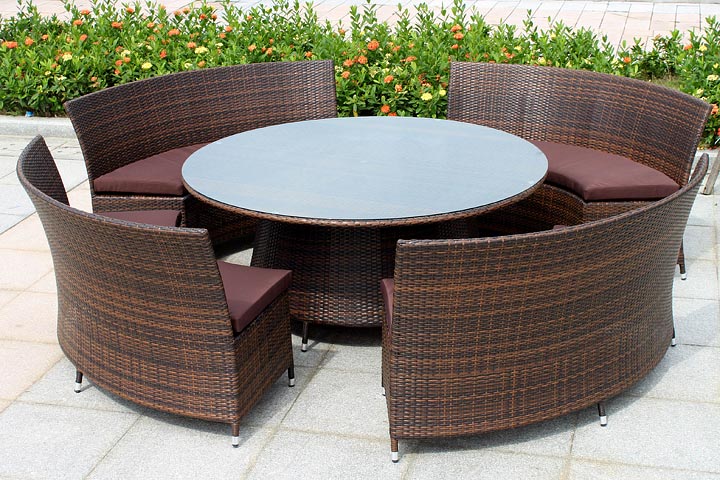
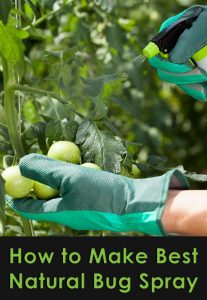
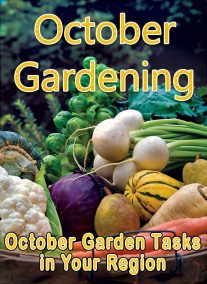
Leave a Reply